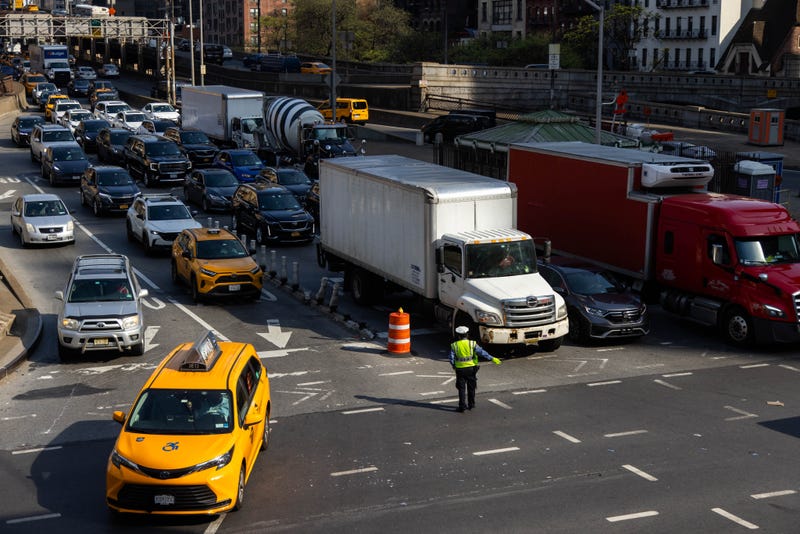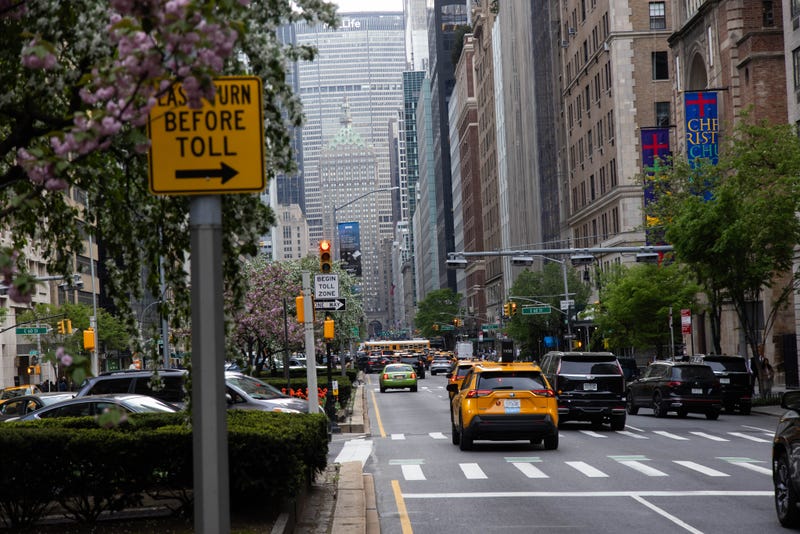
NEW YORK (BLOOMBERG) -- New York City’s congestion pricing toll raised $215.7 million in the program’s first four months as the Trump administration seeks to end the controversial fee.
Since Jan. 5, most motorists have to pay $9 during peak hours to enter south of 60th Street in Manhattan. The toll collections through April are close to budgeted estimates of $217 million for the period and the fee is on track to bring in $500 million this year after expenses, according to the Metropolitan Transportation Authority, which runs the city’s transit system and is implementing the new toll.
The fee is the first of its kind in the US. It withstood a challenge this week from US Transportation Secretary Sean Duffy, who had threatened to potentially begin withholding federal approvals or funding as soon as May 28 if the MTA didn’t end the toll. US District Judge Lewis Liman Tuesday temporarily blocked the federal government through June 9 from taking such action while he considers whether the US has the legal right to stop the toll.
The decision was a win for the MTA, which says it needs the tolling to continue so it can sell bonds in late 2025 or early next year to finance transit upgrades. The agency anticipates raising $15 billion through bond sales over time.

Duffy has said the toll hurts working-class families and small businesses. In February, he reversed the Biden administration’s approval of the congestion pricing initiative, saying the program doesn’t include a non-tolled alternative for drivers.
The aim of the program is to reduce the number of vehicles driving into one of the world’s most traffic-clogged cities, improve air quality and raise revenue to modernize a more than century-old transit system.
The toll has reduced traffic. About 8.1 million fewer vehicles drove into Manhattan’s central business district, which includes the tolled zone and two non-tolled highways, from when the fee started through April, a daily average decline of 11%, according to MTA data.
Support for the program has grown. A Siena College poll conducted May 12—15 found that 39% of registered voters in the state want the toll to remain, up from 29% in December who supported it.
